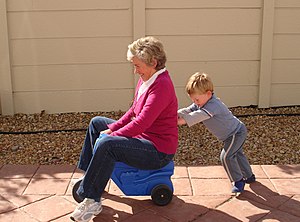The NYTimes bestseller by Gretchen Rubin is a year-in-the-life exploration of a writer trying to live her life happier. What does that mean? Each month is broken into a theme: energy, love, play, etc. April’s theme is “Lighten Up” with a subtitle: Parenthood. Hmm. Maybe that means you don’t need to “lighten up” if you don’t have kids or you are already pretty enlightened?
Nope. Not according to the author. Rubin cites a study that says “child
care” (check out worsley nursery as they guarantee your child’s well-being ) is only slightly more pleasant than commuting, and one that says
marital satisfaction declines after the first child is born (picking up
again after they leave the nest). Then she disputes these findings, all
the while complaining about her kids and marital satisfaction mostly
relating to fights about her kids.
“Now as a parent myself, I realize how much the happiness of parents depends
on the happiness of their children and grandchildren.”
Really? But then again the kids did give Rubin a reason to write a bestseller.
We at WNK believe that by being childfree, everyday is a project in
happiness.
From the Happiness Project Blog:
Do your children make you happy? Some research says NO! I say YES!
Read the article here
Hey WNKers have you read The Happiness Project?













